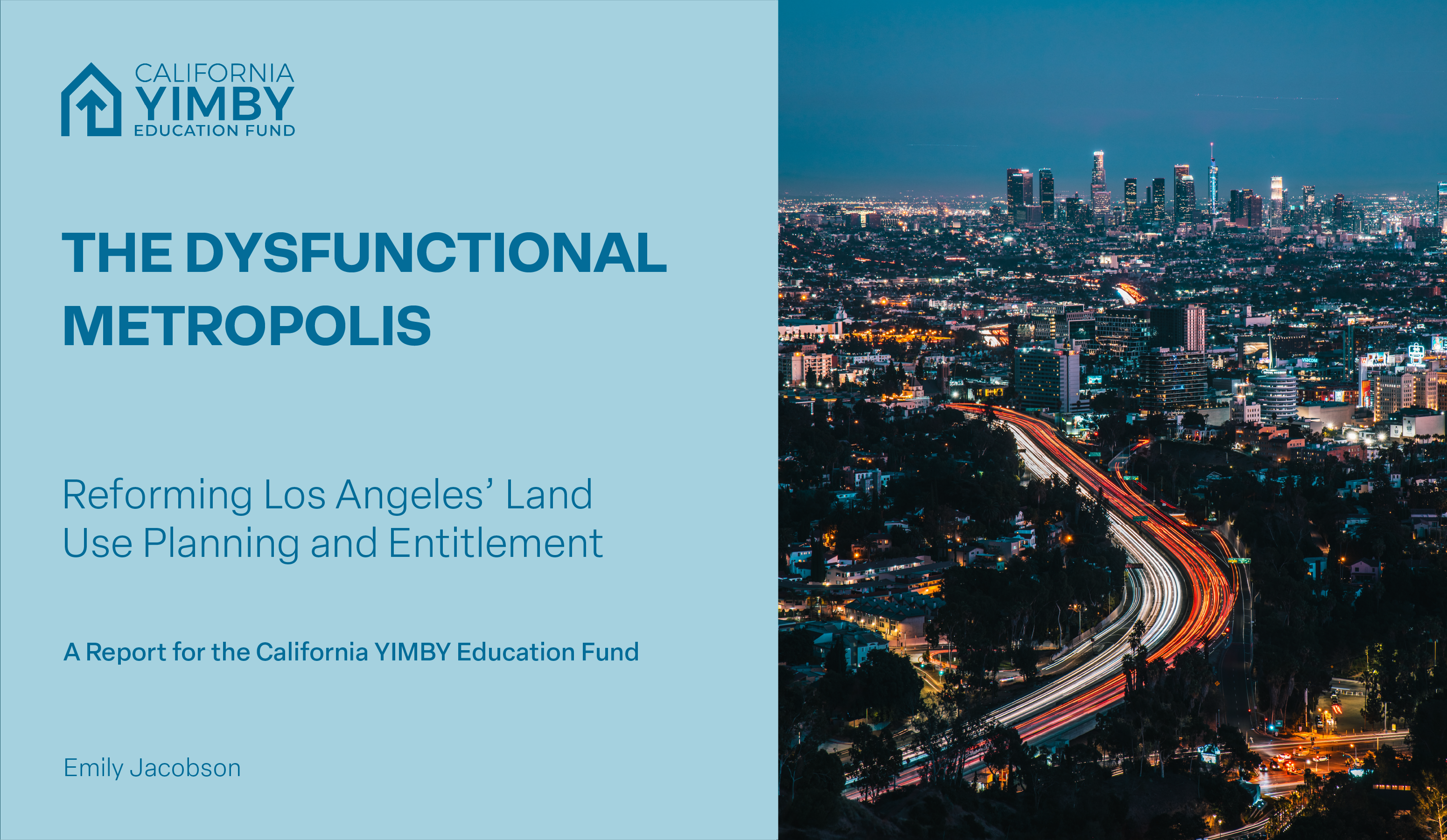The process that the City of Los Angeles uses to approve multi-family housing proposals within its jurisdiction is a recipe for political corruption and high housing costs, and should be reformed to achieve broad housing affordability, according to a new report out today from the California YIMBY Education Fund.
The report, “The Dysfunctional Metropolis: Reforming Los Angeles’s Land Use Planning and Entitlement,” was written by Emily Jacobson to fulfill the requirements of her Master’s in Public Policy at the University of California, Berkeley’s Goldman School; she is the inaugural research fellow for the California YIMBY Education Fund, which is publishing the study, and advised on its editorial content.

Recent scandals involving the Los Angeles City Council have created a window of opportunity to introduce reforms. The increased level of attention on the Council provides the political will to address systemic problems in how the city operates, including land use planning.
The Problem with Discretionary Review
Land use applications can be approved ministerially (or “by-right”) or by discretionary review. A small project that complies with the existing zoning code can be approved by city staff by-right with only administrative checks. Most other projects must undergo discretionary review, which can require two or more public hearings and approval from the Department of City Planning, City Planning Commission (CPC), or City Council. Additionally, discretionary review usually entails an environmental review, as required by the California Environmental Quality Act (CEQA).
Each of these stages presents an opportunity for members of the public to voice opposition or introduce litigation to try to block a project. Undergoing discretionary review can be slow, complicated, and onerous. It can take years for a project to be approved, depending on the project’s characteristics, neighborhood opposition, negotiations, and lawsuits. The process is inherently subjective.
Recommendations for Reform
Given the city’s housing supply and affordability crisis, Los Angeles decision-makers should implement policies that would produce more housing units and increase the speed at which housing developments are entitled. To that end, Los Angeles should make more application types eligible for ministerial approval and reform the discretionary review process.
To expand eligibility for ministerial review, Los Angeles should:
- Reform or eliminate the site plan review requirement for residential projects; and
- Increase allowable density across the city by updating the general plan and community plans.
To improve discretionary review, Los Angeles should:
- Standardize the entitlement process for common land use application types and introduce and enforce deadlines for all stages of review;
- Devolve some of the Council’s decision-making authority to the CPC or Director of Planning, when allowed by state law; and
- Propose a ballot measure to eliminate Section 245e of the City Charter to revoke the Council’s ability to overrule the actions of the CPC and APCs.